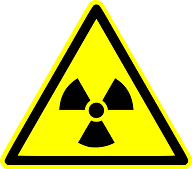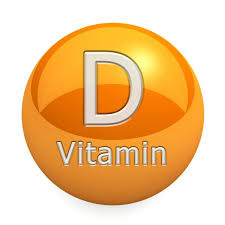With ever cancer patient I help, I always discuss some core basics and there are 10 major tips I would like to share with you.
According to many, cancer is simply a luck of the draw and can happen to absolutely anyone. It certainly is multi-factorial but there is so  much you can do to lower your risk for cancer. The biggest recommendation is aim to prevent rather than treat cancer and start now. It’s much easier to prevent cancer and optimise your wellness than it is to treat it.
much you can do to lower your risk for cancer. The biggest recommendation is aim to prevent rather than treat cancer and start now. It’s much easier to prevent cancer and optimise your wellness than it is to treat it.
- Limit Exposure to Radiation: I often refer patients to a building biologist to have their homes and workplaces audited. It’s recommended you limit your exposure to radiation produced by mobile phones, mobile towers and Wi-Fi stations. There are also major risks from exposure from radiation-based medical scans, including dental x-rays, CT scans, and mammograms.
- Minimise Stress: elevated stress is a major contributor to most disease. Although cancer is a complex condition with many contributions, it is likely that stress and unresolved emotional issues may be more important than the physical ones. At the very least, the diagnosis itself will create stress which must be managed with yoga, qi gong, meditation or other techniques to reduce it.
- Vitamin D: There is ample scientific evidence you can decrease your risk of cancer by more than half simply by optimising your
 vitamin D levels with appropriate sun exposure. I like patients to have serum level over 100 nmol/L for optimal wellness and immune function. If you have been diagnosed with cancer and are taking vitamin D supplements, please have your blood pathology checked to monitor levels.
vitamin D levels with appropriate sun exposure. I like patients to have serum level over 100 nmol/L for optimal wellness and immune function. If you have been diagnosed with cancer and are taking vitamin D supplements, please have your blood pathology checked to monitor levels. - Exercise: Exercise does so much for the body. It stimulates cardiovascular blood flow, stimulates lymphatic movement, lowers insulin levels and increases positive mood with endorphins. In one particular three-month study, exercise was found to alter immune cells into a more potent form in cancer survivors who had just completed chemotherapy. There are also theories that the lactic acid fights cancer and some studies are looking at injecting tumors with lactic acid.
Ideally, your exercise routine should include a range of movements including balance, strength training, flexibility and high intensity interval training. - Food and dietary intake: Keep your food real. What do I mean? Well if it is in a package, consider working out how you can make it yourself with fresh, preferably organic produce. An example would be canned 4 bean mix. Can you buy the beans yourself and use a pot to cook them. You are going to avoid the xenoestrogens from the plastic lining inside the can, plus they will be fresher without the high salt content. Another example would be eating brown rice as a carbohydrate instead of processed pasta. Eating food as close as you can to things directly from the earth is paramount to maximise nutrient content.
- Limit carbohydrates and sugar: Reduce or eliminate processed foods, refined sugar/fructose and high carbohydrate foods like
 bread from your diet. A lot of evidence is suggesting that if you want to avoid cancer, or you currently have cancer, you absolutely must avoid all forms of sugar, especially fructose, which feeds cancer cells and promotes their growth. Ketogenic diets are also often helpful for reduction in cancer tumor growths.
bread from your diet. A lot of evidence is suggesting that if you want to avoid cancer, or you currently have cancer, you absolutely must avoid all forms of sugar, especially fructose, which feeds cancer cells and promotes their growth. Ketogenic diets are also often helpful for reduction in cancer tumor growths. - Keep your digestive system healthy: Optimising your gut health will reduce inflammation and strengthen your immune system. Your digestion is key to remove waste as well as absorb essential nutrients from your food. There are many pathogenic organisms in the digestion that can cause cancer such as helicobacter pylori. Some studies suggest that inhibiting inflammatory cytokines might slow cancer progression and improve the response to chemotherapy. Either add some probiotics to your daily routine or add naturally fermented food to prevent cancer or speed recovery.
- Keep your fats balanced: Animal proteins and fats are ok, but omega-6, omega-3, aracadonic acid and saturated fats need to be balanced. Healthy nuts and seeds, some fish oils and coconut oils should all be consumed in balance for a healthy body.
- Keep your Immune System Strong: Do you get sick? When did you last have a fever? It is healthy to get a cold now and again and it is a good sign of a vital body to get a fever. A good course of immune boosting medicinal mushrooms and herbs is recommended to keep the immune system primed. Mushrooms such as Reishi or shitake MGN-3 polysaccharides are brilliant for priming the immune system.
- Optimal Sleep: Make sure you are getting enough restful, quality sleep. Poor sleep can interfere with your melatonin production,
 which is associated with an increased risk of insulin resistance and weight gain, both of which contribute to cancer. Nightshift work is obviously a complication to sleep hormones and is not recommended for long periods
which is associated with an increased risk of insulin resistance and weight gain, both of which contribute to cancer. Nightshift work is obviously a complication to sleep hormones and is not recommended for long periods
For more information on cancer natural support, check out this page.
